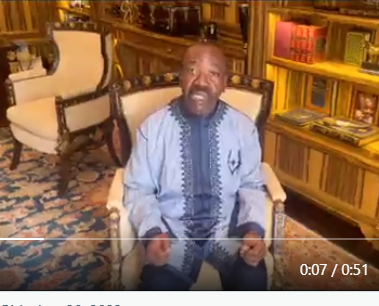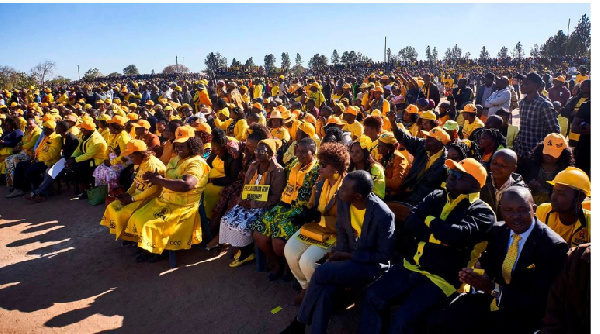Today’s leadership

This week, we flip the coin to discuss the other side of leadership i.e., Followership. Most discussions about
the state of progress in Africa circles around leadership on the continent or the lack of it. In this article, we take the view that followership by the youth in particular is equally very important to turn the fortunes of the continent around. We explore ways in which followers can nudge their leaders to act in ways that transform Ghana into a country that meets the aspirations of its citizens.
In Ghana, the youth are often seen as the future leaders and agents of change. As the custodians of the nation's destiny, it is essential for them to critically assess their role in shaping the political landscape. Instead of blindly cheering on politicians, the youth must rise above political, tribal, and religious affiliations and demand higher
standards from those they support. By placing their interests first and refusing to compromise on integrity and performance, the youth can drive a paradigm shift in Ghanaian politics, ensuring that politicians prioritize the welfare and aspirations of the nation over personal gain. By challenging the status quo and demanding higher standards, the youth can usher in a new era of responsible governance and secure a brighter future for themselves and their fellow citizens.
Cheering on politicians without questioning their actions or performance merely because they share the same grouping perpetuates a culture of complacency and mediocrity.
The youth must hold politicians accountable for their promises and actions, regardless of their tribal, party affiliation or popularity. By demanding transparency, honesty, and results, the youth can ensure that politicians are committed to serving the nation's interests rather than their own. Politicians who renege on their promises mostly do so
to serve their own interest. Why should any young person keep defending such people when their interests are not aligned with the general progress of the rest of the citizenry? By voicing their concerns and holding politicians accountable for their decisions, the youth can pave the way for a more responsive and responsible
government that truly serves the interests of the people.
Tribal affiliations have long been a divisive factor in Ghanaian politics, hindering progress and fostering a sense of division not just among the youth but a whole people.
It is very common seeing Ghanaian youth or defend politicians passionately because they are from the same place or because they are their tribesmen/tribeswomen even when they are fully aware that those politicians are up to no good.
This is rather quite strange because what these people fail to realize is that, in doing so, they endorse the failings of those politicians and hence embrace the shame that the actions and inactions of those individuals bring on the collective identity of their tribe or ethnic group. Rather than cheer on politicians just because they are from their ethnic or tribal group, it is time for the youth especially to aspire and rise above tribal biases and unite as one Ghanaian force. By transcending tribal boundaries and working together, the youth can create a stronger, more inclusive political environment that reflects the diverse aspirations and needs of the nation.
The youth must resist the temptation to settle for underperforming politicians who do not prioritize the nation's development. For diverse reasons, it has become a trend that Ghanaians lower their standards of expectations when the people they support assume leadership positions. By refusing to compromise their standards, the youth can send a powerful message that they deserve leaders who are competent, ethical, and committed to achieving greatness for Ghana. By demanding excellence, the youth can inspire politicians to rise to the occasion
and work tirelessly for the betterment of the country.
To effect meaningful change, the youth must prioritize their own interests and aspirations. They should not allow
themselves to be swayed by empty rhetoric or promises that do not align with their vision for a prosperous Ghana. It is not enough to passively observe and cheer on politicians. The youth have the power to shape the political landscape by actively participating in the decision-making process, advocating for policies that address their concerns, participating in grassroots movements, engaging in constructive dialogue, and supporting candidates who demonstrate a genuine commitment to serving the nation's interests.
It is time for the youth of Ghana to ask themselves, "e; Why are You Cheering?& quote; By demanding
accountability, transcending tribal divisions, and setting higher standards for politicians, the youth can shape a brighter future for their country. They must prioritize their own interests, refuse to compromise on integrity, and demand excellence from those who seek their support. The youth have the power to transform Ghanaian politics and
ensure that leaders are driven by a genuine desire to uplift the nation. It is through their collective actions that the youth will inspire a new era of responsible governance, where the success and honor of Ghana are paramount.
Source: Ghana Diaspora Youth Movement( Ghadym)





